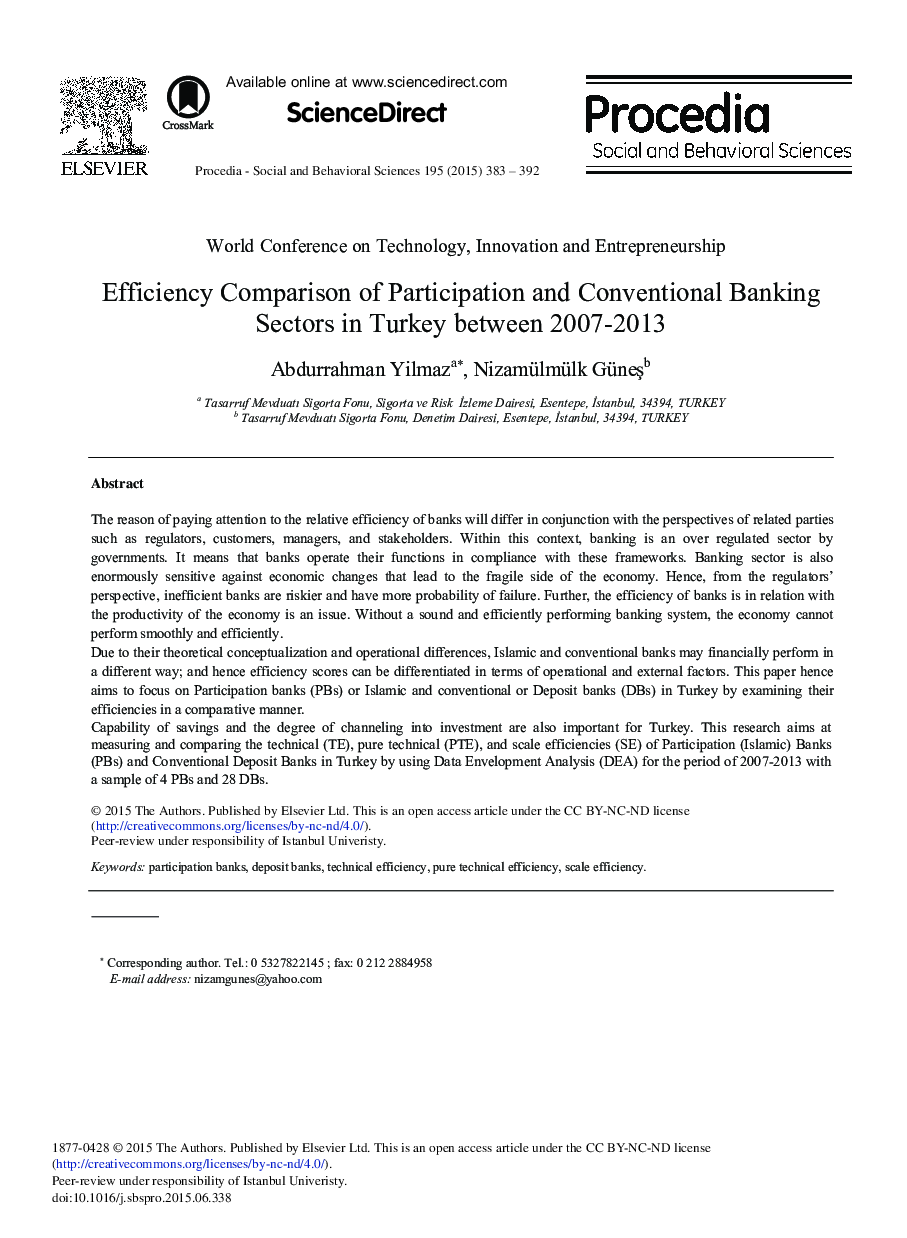| Article ID | Journal | Published Year | Pages | File Type |
|---|---|---|---|---|
| 1110058 | Procedia - Social and Behavioral Sciences | 2015 | 10 Pages |
The reason of paying attention to the relative efficiency of banks will differ in conjunction with the perspectives of related parties such as regulators, customers, managers, and stakeholders. Within this context, banking is an over regulated sector by governments. It means that banks operate their functions in compliance with these frameworks. Banking sector is also enormously sensitive against economic changes that lead to the fragile side of the economy. Hence, from the regulators’ perspective, inefficient banks are riskier and have more probability of failure. Further, the efficiency of banks is in relation with the productivity of the economy is an issue. Without a sound and efficiently performing banking system, the economy cannot perform smoothly and efficiently.Due to their theoretical conceptualization and operational differences, Islamic and conventional banks may financially perform in a different way; and hence efficiency scores can be differentiated in terms of operational and external factors. This paper hence aims to focus on Participation banks (PBs) or Islamic and conventional or Deposit banks (DBs) in Turkey by examining their efficiencies in a comparative manner.Capability of savings and the degree of channeling into investment are also important for Turkey. This research aims at measuring and comparing the technical (TE), pure technical (PTE), and scale efficiencies (SE) of Participation (Islamic) Banks (PBs) and Conventional Deposit Banks in Turkey by using Data Envelopment Analysis (DEA) for the period of 2007-2013 with a sample of 4 PBs and 28 DBs.
